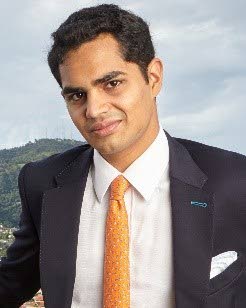How to cheat death and save billions

kmmpub@gmail.com
The bodies and minds of half the country – and more than $6.8 billion a year – are being lost because we aren’t stopping heart disease, diabetes or mental illness before they kill us or lock us away.
How many of the men and women trapped in cages and defecating in buckets; that filled our screens last week, had treatable issues that might have been prevented much earlier?
You may not realise it, but we have more in common with those poor souls than we think.
You might not end up in a cage. But as dramatic will be the heart attack that suddenly robs you of life or health; or the innocuous doctor’s visit that turns into a gut wrenching revelation: “I’m sorry ma’am your eyesight is going, and possibly for good…”; “I’m sorry but your son’s mania requires institutional confinement.”
It is a natural human bias to discount early care and preventative treatment. Psychologists and economists alike fret about the reasons why we (and it is most all of us) don’t spend enough time looking after our minds and our bodies.
Still, one in two people that die in this country die of heart disease, a stroke or diabetes, says the Health Ministry. And, says the World Health Organisation, in Latin America and the Caribbean up to 24.2 per cent of our populations suffer from some mental disorder – ranging from anxiety to depression.
The equally wondrous and frustrating thing is that human knowledge and modern medicine make all these things largely preventable. We could literally glow with health.
How? We’ve all been lectured about cutting out the refined starch, sugar, salt, and unhealthy fats. We all know we need to go for a walk or a hit the gym. We know we need to pop our pills. We all know we need to steer clear of smoking, cut down the booze and go see a shrink.
But it’s tough. The reality is that many “unhealthy things” like booze or ice-cream lubricate social interactions and enable experiences that bind us together with family, friends and strangers. And our culture still views “soft” feelings as a sign of weakness.
The concept that we must simply buckle down with self-discipline is old hat. We can only make the right choices if our whole lives are redesigned to help us do so.
We now know that a choice as simple as taking a heart pill is guided by a huge number of factors: from cost, to time, to physical access to education. That’s why more than 46 per cent of people don’t even bother to fill their prescription, says Dr Mandreker Bahall.
The same goes for the decision to reach for broccoli instead of fried chicken. The Health Ministry reckons that 90 per cent of the population have less than five servings of fruit and vegetables daily, while 74.6 per cent of students still drink more than one sweet soft drink every day.
But changing these behaviours is not impossible.
First, we can throw more resources at capturing the crucial data that should inform our policymakers every decision, as UWI lecturer Dr Robin Seemongal-Dass and others have advocated.
Then we can quickly tack up a few whiteboards and map people’s decision processes from start to finish; from the decision to eat poorly, to the decision to not exercise or the decision to not take lifesaving medication. Once we find those pain points, we can surgically remove them.
Can technology make taking drugs less difficult or confusing? Can the State use school lunches to bombard children with vegetables? Can employers be convinced that physically active employees make them more money?
If spun right, a national preventative medicine programme, dull as it sounds could make as many headlines as announcing a new hospital. Look at the global attention New Zealand’s PM got with her “mental health budget.”
The opportunity is tremendous: don’t forget the $6.8 billion that diabetes and heart disease extract through healthcare costs and lost productivity, as think-tank RTI International has measured.
The private health sector has just as much an incentive to get involved as the public. It is an opportunity for the health industry to enter the rapidly growing markets for “wellness”, and outpatient and continual care. GPs are the unsung heroes in this battle: people like Dr Maria Clapperton of the Caribbean Collection of Family Practitioners.
We must escape those dark places of last resort: the emergency room and the psychiatric ward. We still have the chance to cheat death.
Kiran Mathur Mohammed is a social entrepreneur, economist and businessman. He is a former banker, and a graduate of the University of Edinburgh


Comments
"How to cheat death and save billions"